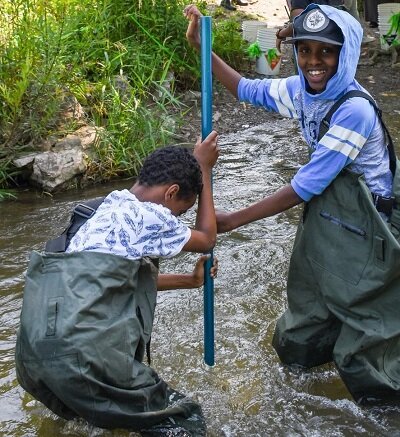EcoSpark Blog
Those aren’t just warts - They’re Hackberry Psyllids!
These warts, called galls, actually house a big secret. More of a little secret, really. Meet the Hackberry Psyllid.
Have You Heard of Bioacoustics?
Bioacoustics is the study of the production, transmission, and reception of sounds produced by or affecting living organisms. But why is it necessary?
SPRINGO and City Nature Challenge
Help put Toronto and the GTA on the map to win the title of the wildest city in Canada by taking part in the City Nature Challenge 2023 from April 28 - May 1!
The Wonders of Algae
Algae are some of the most impactful organisms on the planet. They are critical members of aquatic ecosystems, they’re important sources of oxygen, but they can also cause great destruction as a result of human pollution.
The Great Backyard Bird Count is Here
The Great Backyard Bird Count is a citizen science project where people worldwide watch birds over a four-day period (February 17-20) and report what they see to create an annual snapshot of the distribution and abundance of birds.
Caterpillars Count: Invasive Spongy Moths in Southern Ontario
Invasive Spongy Moth caterpillars are a common species found during EcoSpark’s Caterpillars Count surveys. In this blog post you will learn more about this species, its population control, and what can be done to slow its spread.
Greenbelt Youth Ambassadors 2019
This past year EcoSpark launched its first ever Greenbelt Youth Ambassador program!
EcoSpark’s Changing Currents Program is the perfect experience for students to go green
Water quality monitoring through Changing Currents goes beyond being an outdoor experience that helps students explore the overall health of watersheds in their community.
What is Citizen Science and Why is it so Important?
Citizen Science is a participatory approach to environmental research where participants learn about local green spaces by contributing collected scientific data to real studies. Typically organized or managed by professional scientists, the collection of crowdsourced data sets are utilized to both gain a better understanding of the world around us, and answer practical and pressing questions.
Fresh Water in a Changing Climate
Fresh water is the cornerstone of life everywhere. It’s necessary to keep our bodies healthy and thriving, and is an integral part of our well-being and happiness.
Changing Currents Site Spotlight: Glen Steward Ravine
Glen Stewart Ravine is another great example of a green gem hidden within the bustling city limits of Toronto.
It’s Spring! Celebrate with Citizen Science
This Spring EcoSpark is launching a new project called School Watch: Green Spaces as Learning Places. School Watch allows students to contribute meaningful citizen science data while learning about ecosystem health and positive actions in the community. To celebrate Spring, try the native plant activity (below) featured in School Watch!
Frogs and Toads
When thinking about the early signs of springs you might think about American robins, red-winged blackbirds, daffodils or crocuses - but let’s not forget about our amphibian friends.
A Primer on Invasive Alien Species and an introduction to Phragmites australis
Phragmites australis, also known as Phragmites or Common reed is a prolific invader of wetlands, and has been deemed one of the worst invaders by Agriculture and Agri-food Canada1. Keep reading to learn more about Phragmites and how EcoSpark can help you fight invasive species.
Get Started with Citizen Science with the Great Backyard Bird Count
Birds: They pollinate, eat mosquitos, spread seeds, poop fertilizer… oh yeah, and they’re dinosaurs. They are a fascinating way to get your feet wet in the wonderful world of citizen science. Read on to learn just some of the reasons why birds are awesome, and how you can help them!
Take Action: Remaining Engaged
Now that you have finished your stream study get active in your local schools and communities and try out some of these cool projects.
CoCoRaHS- A winter monitoring initiative for you and your students!
If you have not yet heard, EcoSpark is offering various curriculum-linked environmental projects for teachers and students through our School Watch Program where teachers and students can learn how to lead citizen science projects with their students on school grounds.
Aquatic Insects: Indicator Species of Urban Watershed Health
Benthic Macro Invertebrates (BMI’s) are important environmental indicators of the health and integrity of watersheds and for this reason, can be effectively utilized in urban stream studies. EcoSpark assembles preserved BMI study sets that are used to teach students how to collect and identify these species.
Family Christmas Bird Count
Interested in birding and citizen science? Join Friends of Sam Smith at this year’s annual Family Christmas Bird Count on Boxing Day at Colonel Sam Smith Park!
Action Research in Education: A look into Changing Currents
Action Research in education involves teachers identifying a question focused on their own teaching practice and then planning to take action with their students to help answer that question.




















